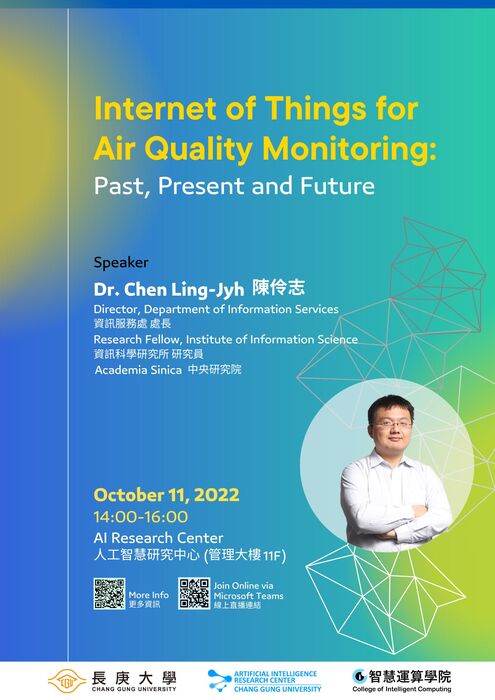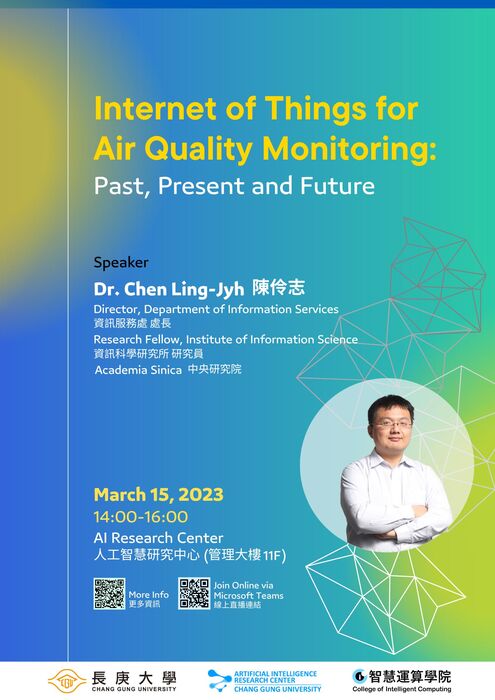【AI Seminar】Internet of Things for Air Quality Monitoring: Past, Present and Future. By Ling-Jyh Chen, Director of Department of Information Technology Services, Academia Sinica


【AI Seminar】Internet of Things for Air Quality Monitoring: Past, Present and Future. By Ling-Jyh Chen, Director of Department of Information Technology Services, Academia Sinica
Title: Internet of Things for Air Quality Monitoring: Past, Present and Future
Speaker: Ling-Jyh Chen
Position: Research Fellow, Institute of Information Science of Academia Sinica & Director of Department of Information Technology Services of Academia Sinica
Time: 2022.3.15 (Wed) 14:00-16:00
Venue: CGU Artificial Intelligence Research Center (Management Building 11F)
Join Online: https://shorturl.at/dorXY
Speaker’s Bio: Ling-Jyh Chen is the Research Fellow in Institute of Information Science of Academia Sinica, and the Director of Department of Information Technology Services of Academia Sinica. He received the Ph.D. degree in computer science from University of California at Los Angeles in 2005. His research interests are networked sensing systems, Internet of things, and big data analytics. His most recent project is the AirBox project, which is based in Taiwan and operated in a grassroots fashion with more than 20,000 deployments across 59 countries till now. The data portal of this project has become the most popular data source about PM2.5 istributions in Taiwan.
Abstract: With emerging concerns of air pollution and recent advances in Internet of Things (IoT) technology, air quality monitoring has become one of the most important IoT applications in many countries and major cities. In this talk, we first talk about our AirBox project, which engages citizens to participate in the PM2.5 sensing project and empowers participants to make low-cost PM2.5 sensing devices on their own. Moreover, it enables PM2.5 monitoring at a finer spatio-temporal granularity and enriches environmental data analysis by making all measurement data freely available for everyone. Then, we present examples of big data analysis using AirBox data for anomaly detection, emission source finding, and data forecast services. We also demonstrate applications that are built upon the results of AirBox data analysis, as well as cross-disciplinary collaborations, for both outdoor and indoor scenarios. Finally, we discuss the open challenges and research issues for future environmental monitoring IoT systems.
Organizers: Artificial Intelligence Research Center & College of Intelligent Computing
※ No registration needed.

